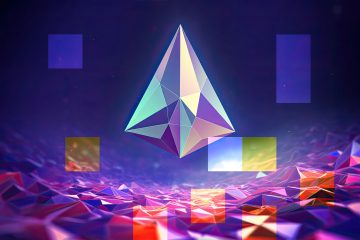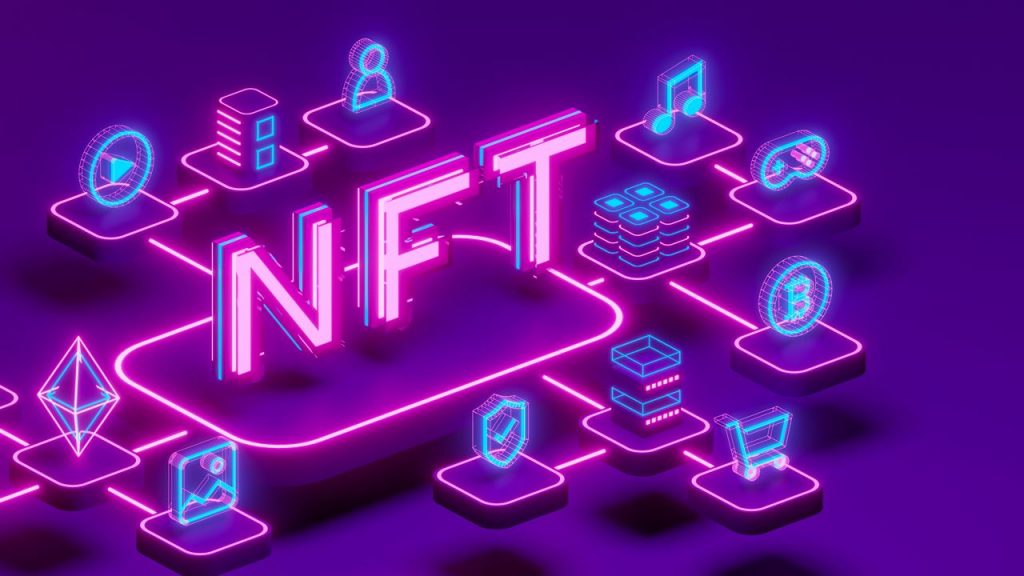
The world of digital ownership is undergoing a seismic shift with the rise of Non-Fungible Tokens (NFTs). NFTs are unique digital assets using blockchain technology to authenticate ownership and provenance.
This has created a new market for digital art, collectables, and other unique items previously impossible to authenticate or trade.
NFTs have opened up new avenues for creators to monetize their digital creations and for collectors to own unique and valuable digital assets. This technology has the potential to revolutionize the way we think about digital ownership and has already made waves in the art world, with NFTs selling for millions of dollars at auction.
This article will explore the rise of NFTs and their impact on digital ownership, including the potential for new markets, the challenges of regulating this new space, and the implications for the future of art and collectables. For those who already know that they need a help with creating an own NFT marketplace, contact us.
We will delve into the technology behind NFTs, the role of blockchain, and the emergence of cryptocurrency as a means of exchange in this new digital landscape.
Let’s explore the exciting and rapidly evolving world of NFTs.
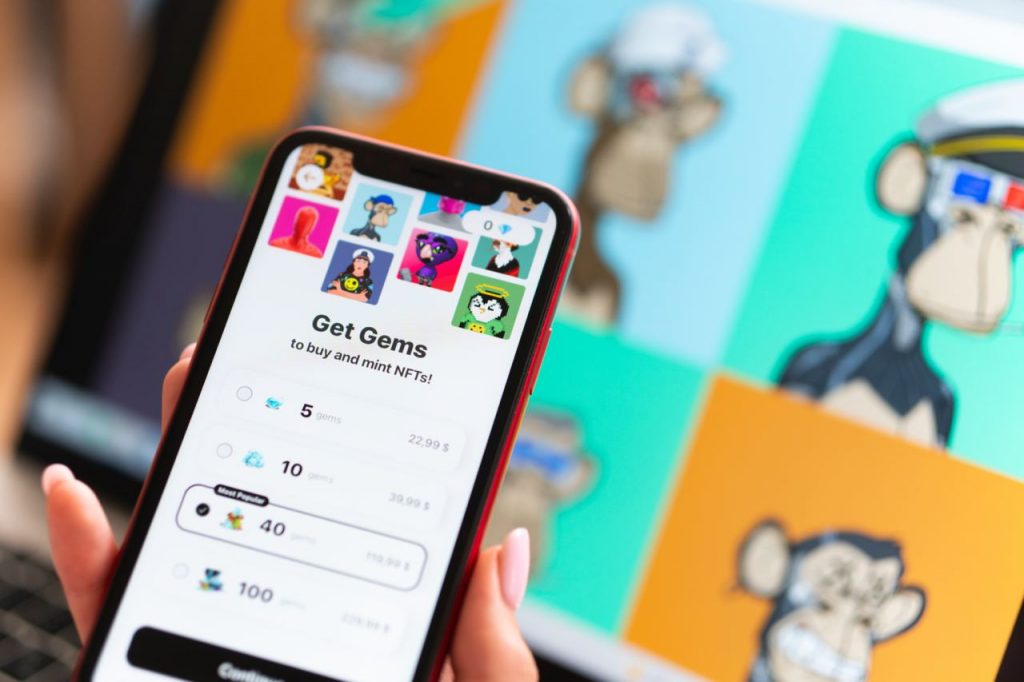
What are NFTs?
NFTs, or Non-Fungible Tokens, have recently gained significant attention due to their unique ability to establish digital ownership of art, collectables, and other digital assets.
An NFT is a unique digital asset stored on a blockchain, a decentralized and immutable ledger.
Unlike traditional ownership models, NFTs cannot be replicated or duplicated, making them a valuable tool for creators looking to establish ownership of their digital creations. Each NFT contains unique metadata that identifies it as a one-of-a-kind item, making it highly desirable to collectors and investors.
NFTs are typically purchased using cryptocurrency, further blurring the lines between traditional finance and the world of blockchain technology. Once an NFT is purchased, the buyer has full ownership and control over it, including the ability to sell, trade or transfer it to another party.
While the concept of NFTs is still relatively new, they have already significantly impacted the art world, with several high-profile sales fetching millions of dollars. In addition to art, NFTs have also been used to establish ownership of other digital assets, such as virtual real estate, music, and tweets.
How NFTs are Changing the Way We Think About Digital Ownership
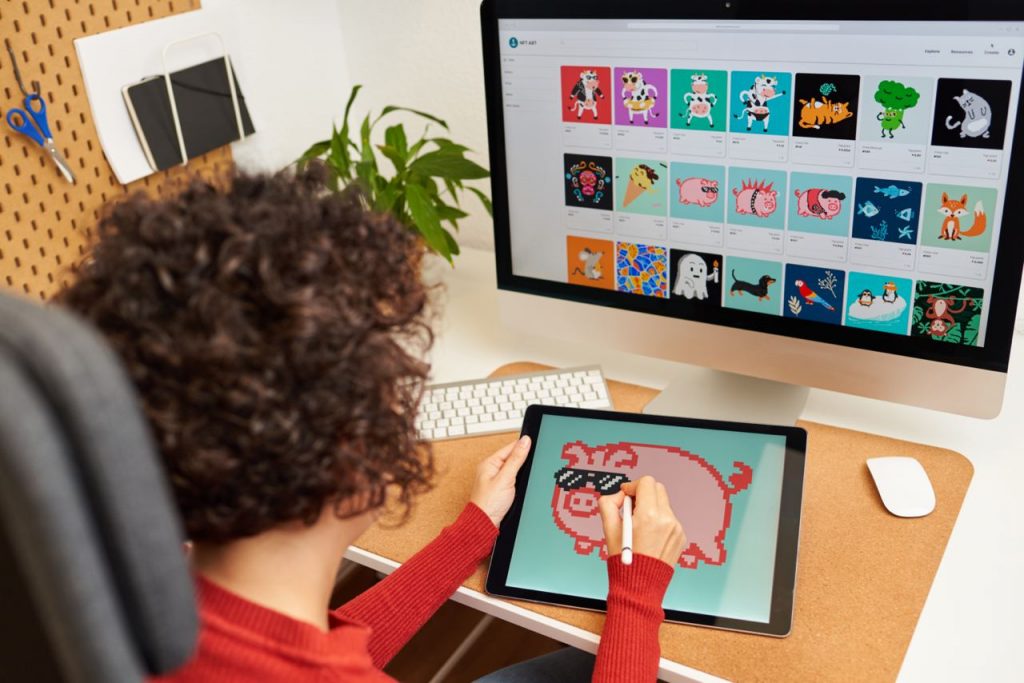
In recent years, non-fungible tokens (NFTs) have emerged as a revolutionary technology in digital ownership.
Unlike traditional digital assets, NFTs use blockchain technology to create unique, verifiable ownership records for everything from art and music to virtual real estate and collectables.
Advantages of NFTs over Traditional Digital Ownership Models
- Verified Authenticity: NFTs use blockchain technology to verify the authenticity and ownership of digital assets, eliminating the risk of fraud and counterfeiting.
- Immutable Ownership Records: Once an NFT is created, ownership is recorded on the blockchain, creating an immutable record that cannot be altered or deleted.
- Increased Value: NFTs can potentially increase the value of digital assets, creating new opportunities for creators and collectors to monetize their work.
- Fractional Ownership: Make it possible for multiple people to own a piece of a digital asset, allowing for new forms of investment and collaboration.
- Smart Contract Capabilities: These digital currencies uses smart contract capabilities, enabling automatic royalty payments and other transactions.
- Global Accessibility: Allow for the global trade and exchange of digital assets, opening up new markets and opportunities for creators and collectors.
- Democratization of Ownership: NFTs make it possible for anyone to own a piece of a digital asset, democratizing ownership and giving power back to the people.
- Decentralized Ownership: With NFTs, ownership is decentralized and not controlled by any single entity, providing a new level of freedom and control for creators and collectors.
Potential Impact on Industries Beyond Art and Collectibles:
The implications of NFTs extend far beyond the world of art and collectables. NFTs can potentially revolutionize gaming, real estate, and finance.
For example, NFTs can be used to verify ownership of virtual real estate in online games, creating new opportunities for investment and growth.
In real estate, NFTs can create verifiable ownership records for physical properties, reducing the risk of fraud and increasing transparency. And in finance, NFTs can be used to create new investment opportunities in digital assets, bringing the benefits of blockchain technology to traditional financial markets.
The Future of Art and Collectibles
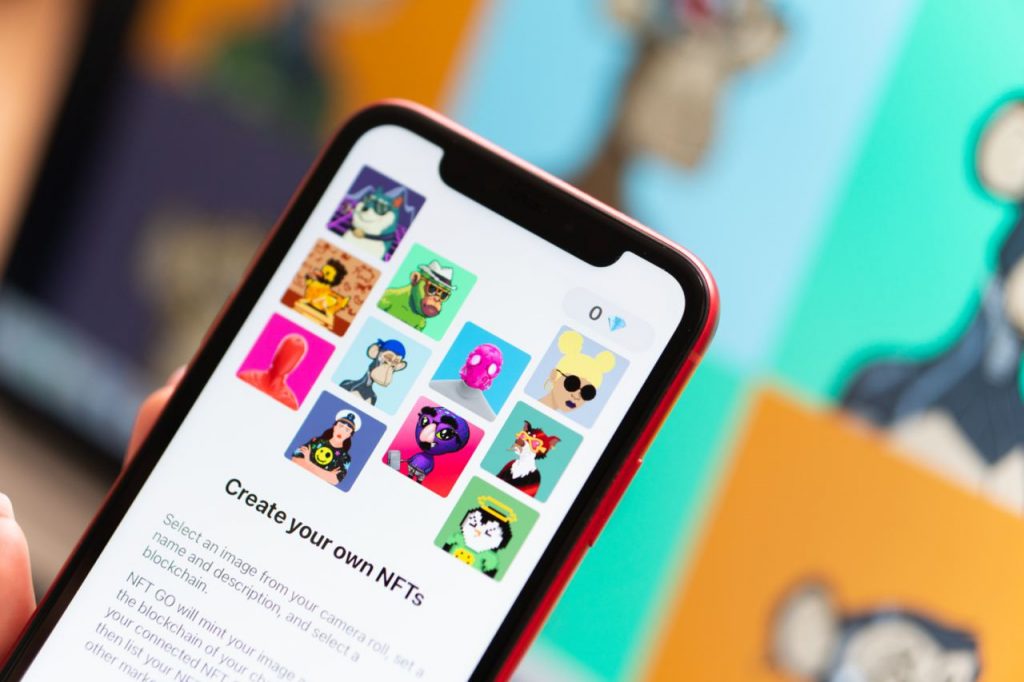
As blockchain technology revolutionizes various industries, it has created a new era for art and collectables. The use of non-fungible tokens (NFTs) has allowed for digital ownership and unique identification of artwork and collectables. This has opened up exciting new possibilities for creators, collectors, and investors.
Prominent artists and creators have embraced NFTs, including Beeple, Grimes, and Kings of Leon. Beeple’s digital artwork, “Every Day: The First 5000 Days,” sold for $69 million at a Christie’s auction. Kings of Leon released their latest album as an NFT, offering exclusive bonuses for purchasers. Additionally, platforms like NBA Top Shot and Rarible have seen a surge in interest in NFT-based collectables, with some items selling for hundreds of thousands of dollars.
Potential for the democratization of art and collectables through NFTs:
One of the significant benefits of NFTs is their potential to democratize the art and collectables market. With traditional artwork and collectables, only a select few with significant resources can acquire them. However, NFTs allow for fractional ownership and the ability to sell and trade digital artwork and collectables. This opens up new investment opportunities for a wider range of people and could lead to greater art and collectables market diversity.
Criticisms and challenges to the adoption of NFTs in the art world:
While NFTs can potentially revolutionize the art and collectables market, their adoption also has criticisms and challenges.
Some critics argue that NFTs perpetuate the commodification of art and devalue the traditional art market. Additionally, there are concerns about the environmental impact of NFTs, as their creation and sale consume significant energy resources.
Despite these challenges, the use of NFTs in the art and collectables market is an exciting development that has the potential to reshape the industry. As technology evolves and becomes more accessible, it will be fascinating to see how NFTs continue to impact the art and collectables market.
Role of Blockchain and Crypto in NFTs
Blockchain technology is a decentralized and secure way of recording transactions well-suited for the digital world. One of its most exciting applications is non-fungible tokens (NFTs), which provide a secure and transparent way to track the ownership and provenance of digital assets.
NFTs are unique digital assets representing many things, including art, collectables, and even tweets. They are often created using blockchain technology, which allows for a permanent and tamper-proof record of ownership and transfer.
By using blockchain technology, NFTs can provide a level of digital ownership that was previously impossible. They allow creators and collectors to prove ownership and authenticity, which is particularly important in digital art, where piracy and plagiarism are risks.
Role of Cryptocurrencies in NFTs
Cryptocurrencies play an essential role in NFTs, as they provide a means of exchange for these unique digital assets. In many cases, NFTs are bought and sold using cryptocurrencies like Bitcoin or Ethereum, also based on blockchain technology.
One of the key benefits of using cryptocurrencies for NFT transactions is the speed and efficiency they offer. Transactions can be completed quickly and securely without intermediaries like banks or other financial institutions.
Benefits of Blockchain Technology for NFT Ownership and Verification One of the most significant benefits of using blockchain technology for NFT ownership and verification is its transparency and immutability. Each transaction is recorded on a public ledger, making it easy to trace the ownership and transfer of digital assets.
This level of transparency also helps to prevent fraud and counterfeiting. Since each NFT is unique and identifiable on the blockchain, it is difficult for anyone to create a fake or duplicate version of an existing asset.
Conclusion
In conclusion, integrating blockchain technology and cryptocurrencies has revolutionized the world of NFTs. NFTs have introduced a new paradigm of digital ownership and provenance, allowing artists and creators to have greater control over their works and monetize them more effectively.
Blockchain technology provides an immutable and transparent ledger, ensuring the authenticity and uniqueness of NFTs, while cryptocurrencies offer a decentralized payment mechanism, eliminating intermediaries and reducing transaction fees.Moreover, the potential use cases of NFTs extend beyond the art and collectables industry. They can be used for identity verification, real estate, gaming, and more. The ability to tokenize assets and establish digital ownership has the potential to disrupt various industries, creating new opportunities for innovation and entrepreneurship. The role of blockchain technology and cryptocurrencies in NFTs is significant, and their potential to reshape the digital landscape is immense. At FortySeven we are helping our clients with any complexity of Web3 projects. To get a free consultation, contact us.



